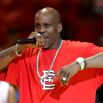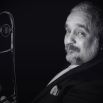Bob Moses: television appearance on Ellen
All of this success might not have happened if it weren't for a chance encounter in a Lowes parking lot one night. The two had known each other back in Vancouver as kids, but each went off to do their own thing after high school. Jimmy came to Brooklyn to work on music as an engineer and producer and Tom went to school at the Berklee College of Music. He left after a year and moved to Brooklyn where the lucky meeting happened near studio space they were both working out of.
Not going the conventional route in life did not faze their parents who were fine with them moving across the continent to pursue music. As Jimmy says, "we have our sh*t together." Lucky for everyone it has worked out so far.
I had a chance to catch up with them to chat about their beginnings in New York City, what they might change about New York City since they are named after Robert Moses the 1950s big apple politician who changed the city landscape, weird sampling, albums and much more.
RM: How did you guys make it when you first get to New York City?
Tom: We didn't make it right away. I moved to the Upper East Side first. I liked it. I was right along the river -- the park was up there. I was struggling to find my way. Jimmy was the same. Jimmy was working with other people and learning. That was when we met up with each other.
Jimmy: It was the working with other people that was good and we were learning and we were doing stuff, but it wasn't right. But when we met each other and started working it felt right. We worked harder than everybody else. Saturday morning we would take the weekend off and go back into the studio. We did that for a long time.
We would go out and meet people. We were part of a scene. I think being part of a scene really helps because there is already an infrastructure that you work your way up in. It informed, inspired and allowed us to collaborate within it. Once we figured that out we became lone rangers.
RM: What types of stuff have you sampled from field recordings?
Tom: I remember we did a chain in a subway station. My friend had a purse with a chain and we recorded that. All sorts of random stuff. The iPhone recording voice memo is really good for recording little things.
Jimmy: We did a frying pan in the apartment. We would creak a chair or walk about the room, open the door, close the door and put that leading up to a drop or a section change in a track.
Tom: We actually record the song quietly in a room over itself. Instead of putting reverb on it we just do that and it makes it sound really organic.
RM: Are there any strange samples on one song?
Tom: There is purse shaking on "Nothing At All." We just had her put the purse over her shoulder and got it to echo around the whole subway and recorded it.
RM: How much did touring impact the album?
Tom: I think the thing about making music is that everything you do will impact the way you write it. There are some songs that are about being on the road and that sort of stuff. We would tour, but we would still be in our studio in Brooklyn. We would go away on weekends and come back. It wasn't like we were in a hotel writing all the time. We were doing three-day weekends, for lack of a better term DJ touring. This is when you tour Thursday, Friday, Saturday night. We would maybe take one day off, but then take four or five days in the studio.
The road definitely influenced the way the record was made. Dance music is about the live aspect of it. It is a social gathering and the shows are called parties. It is about getting together, dancing together and being part of something. We never tried to write a pop song for a certain format or the radio. We started by writing songs that would work in DJ sets so that has always been a big part of how we approach music. That is mainly in the groove.
RM: Was your 2016 schedule something you thought would happen when you first started?
Tom: You aren't sure if it will happen. You aren't sure if you will be able to play Coachella, Lollapalooza, Bonnaroo, Glastonbury and all of that. Now we have been able to play every single festival we dreamed of.
RM: Are you getting used to the travel?
Tom: Definitely. The world feels so small now. You can get almost anywhere in the world in 12 hours.
RM: Tom you have said that vocals can't be too complex to for dance music. Does that help or hinder you?
Tom: I think it has challenged us to write in a certain way. You can compare it to each singer is born with a certain range. You are born with a set of vocal chords and that is what you have to work with. You start off hitting certain notes and then through experimentation you build up that range through experience. I think it is the same with songwriting.
We were in rehearsal last night and Jimmy was on the piano and he just started playing something that sounded like a 90s hit. And we thought that is either a 90s hit or a really great song idea - either way, record it. We are writing all the time and as a project you want to have an identity. Bob Moses has a certain identity and it is nice to have guidelines. It would be like going to an Italian restaurant and getting Szechuan Chicken. You don't want that. It is good to keep things in certain parameters.
RM: Have you guys always intended to be an album or EP group?
Tom: I always thought that with a bunch of songs in an EP or an album we could explain ourselves. A single is not enough. We are still in the process of our identity so we want to set ourselves for a bit of a range.
Singles don't really provide context. If it was one upbeat dance track people would be like "ok" or one acoustic track people might be like "what the hell?" But in an album, if there is an upbeat dance track and another is a pop song and another is a slower, more introspective thing, you can put them all together. You can create a better picture of the whole thing.
That is one thing that really sets apart The Beatles. They have really diverse songs on one album that all balance each other. The fact they were able to give cultural context to their songs in a body of work. They went nuts and everything worked.
RM: If you were Robert Moses the city planner, what would change about New York City?
Tom: That is a great question, one that we have never been asked and one we should have been asked a long time. I am not sure this is a change, but it is something I wish we got to see or experience. I just read David Byrne's How Music Works and Moby's new book Porcelain and I wish we could have seen that raw grittiness of Manhattan in the 80s and 90s. Now Manhattan is overly priced, overly polished. The Meatpacking district not too long ago was where they actually packed meat and now it is all bougie nightclubs.
Jimmy: I would like to see it maybe only for a week. I would love to go to places like Limelight and see the culture.
Tom: But if I could change anything now, I would make it a little less expensive. It is a little too Wall Street-y now. Putting in something so artists would want to move en masse again. Maybe make the L train work better.
Jimmy: You could add another train to Williamsburg.
Bob Moses are currently on their Never Enough Tour across North America. Tonight they will play Terminal 5 in New York City. Find the full details here. Pick up the deluxe version of their album Days Gone By (Never Enough Edition) here.
Interview edited for length and clarity.
© 2026 MusicTimes.com All rights reserved. Do not reproduce without permission.




